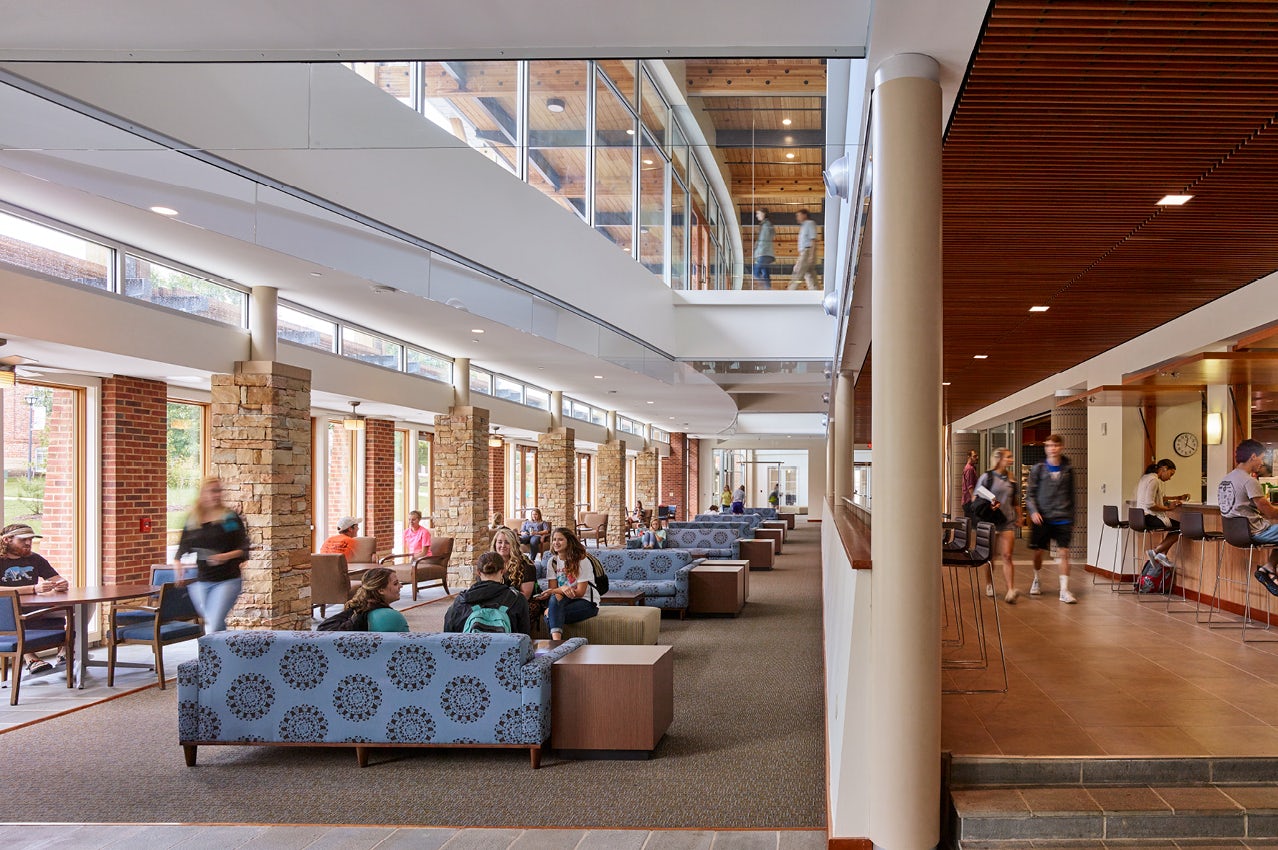On April 8, 2016, Principal Joe Atkins participated in the Learning Spaces Collaboratory’s 2016 Roundtable at Boston University – and presented the design of Young Harris College’s Rollins Campus Center & Miller Library. Learning Spaces Collaboratory (LSC) fosters the translation of “findings from contemporary research and practice in the field into roadmaps for shaping and assessing built environments for learning in the undergraduate setting.” Partners within the LSC, include academics, architects, leaders of national societies, and academic leaders from across the country.
In 2016, roundtables were held at Georgia Institute of Technology (March 22); Boston University (April 8); University of Washington (April 26); Loyola Marymount University (May 12); and the University of Chicago Illinois (June 2). At Boston University, participating academics and architects began by discussing their reflections on the questions posed in the architectural portfolios that were a major resource for this particular roundtable.
Initial questions included:
In creating collaborative learning spaces to engage interdisciplinary learning and research, how can the spaces bring the best intersection of “competition” and “collaboration” among disciplines and/or departments?
– Susan M. Fliss, Harvard University
How might we better integrate: i) pedagogically-informed design of instructional spaces with: ii) faculty development to take maximal advantage of state-of-the-art teaching spaces with: iii) assessment of the effectiveness of new spaces and teaching modalities?
– James V. Staros, University of Massachusetts Amherst
Participants conversed about the notion of social innovation theory, the role of the champion in making change happen – and about what a champion is and about the role of an institution to develop, nurture, and support champions. One participant noted there is a tremendous cost to a champion for encouraging innovation – especially when not everyone is in his or her corner. Participants concluded that we need to be discussing the social friction of innovating and the practical issues relating to innovating such as costs and disruptions.
For more on the LSC resources that enable this discussion, see:
